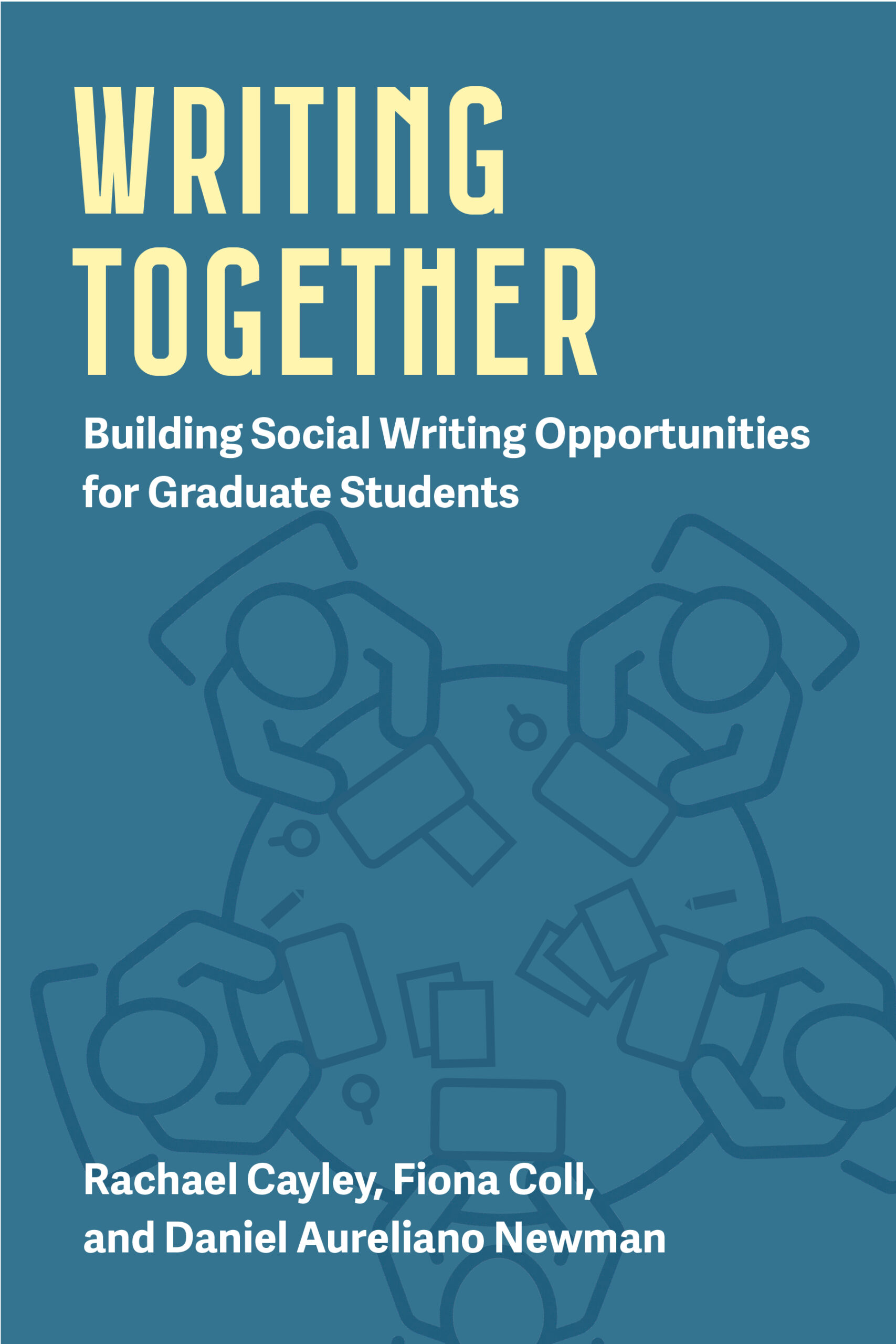In collaboration with the University of Michigan Press, the CGC in 2022 launched Practice, Pedagogy, and Programming for Graduate Communication, a book series that seeks to extend conversations and scholarship in the field of graduate communication support through brief, practitioner-focused volumes. Volumes will include research-based and theorized resources including critical frameworks, innovative program profiles, successful pedagogy, and original research around graduate writing and communication with a view toward bridging the gap between theory and practice. Talinn Phillips, Associate Professor of English Rhetoric and Composition at Ohio University, and Rachael Cayley, Associate Professor in the Graduate Centre for Academic Communication at the University of Toronto, edit the series.
For more information and instructions for proposing a volume, visit the series website at University of Michigan Press. The first book in the series is featured below.

Writing Together: Building Social Writing Opportunities for Graduate Students
This first volume in the series, edited by Rachael Cayley, Fiona Coll, and Daniel Aureliano Newman, presents accounts from graduate writing professionals about how social writing programs are imagined and delivered.
In recent years, graduate writing programs have increasingly paid attention to the benefits of writing initiatives that harness the power of peer presence, interaction, and collectivity. These social-by-design writing initiatives—which could be boot camps, writing groups, write-alongs, retreats, peer review sessions, or show-up-and-write gatherings—rely on two central contentions: that graduate writers need support with the practical challenges of writing productivity and that writing alongside others can be a transformative experience for graduate writers. Social writing opportunities offer uniquely dynamic environments in which graduate students can develop their writing processes.
The goal of this book is thus to survey the motivations, rationales, and structures that underpin these initiatives in order to create a practical resource for writing professionals who need to establish or refine their own offerings. Writing Together is less interested in presenting “how to” approaches and more interested in presenting “how we” accounts that will allow readers to learn from the creative programming of others. To capture a range of experiences, institutional models, and forms of social writing support, the book’s fifteen chapters explain the thinking behind social writing initiatives and the processes through which those initiatives have been assessed.
Read more about the book and order it at https://press.umich.edu/Books/W/Writing-Together.


Recent Comments